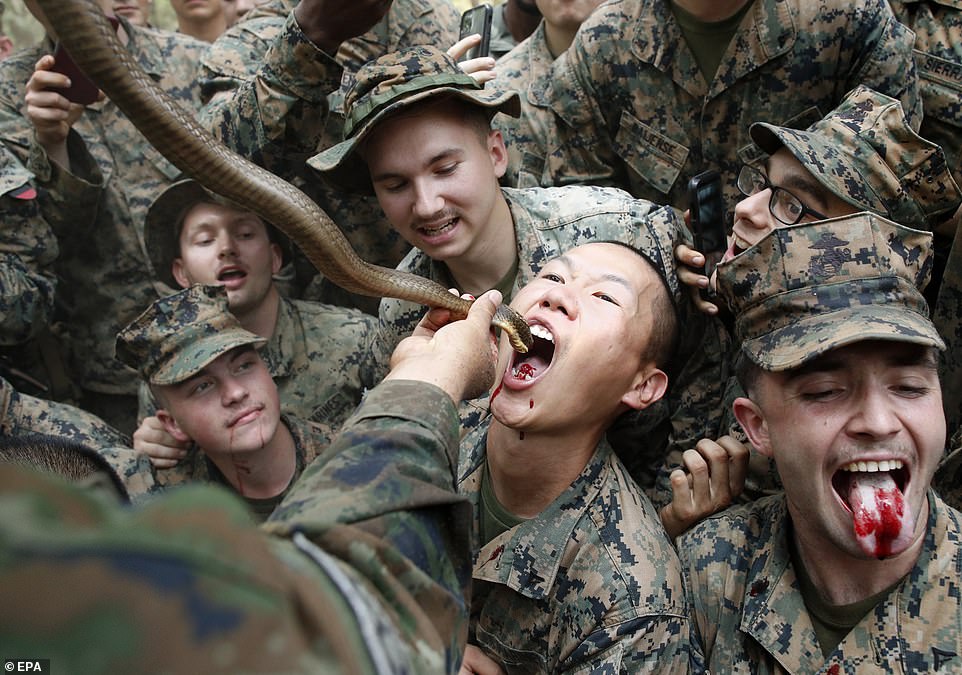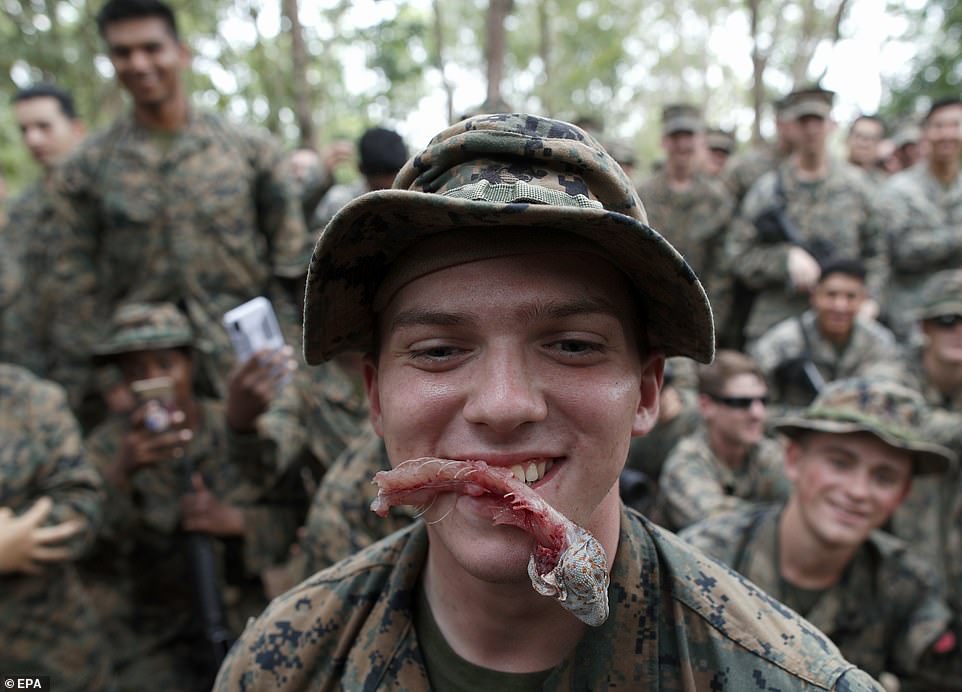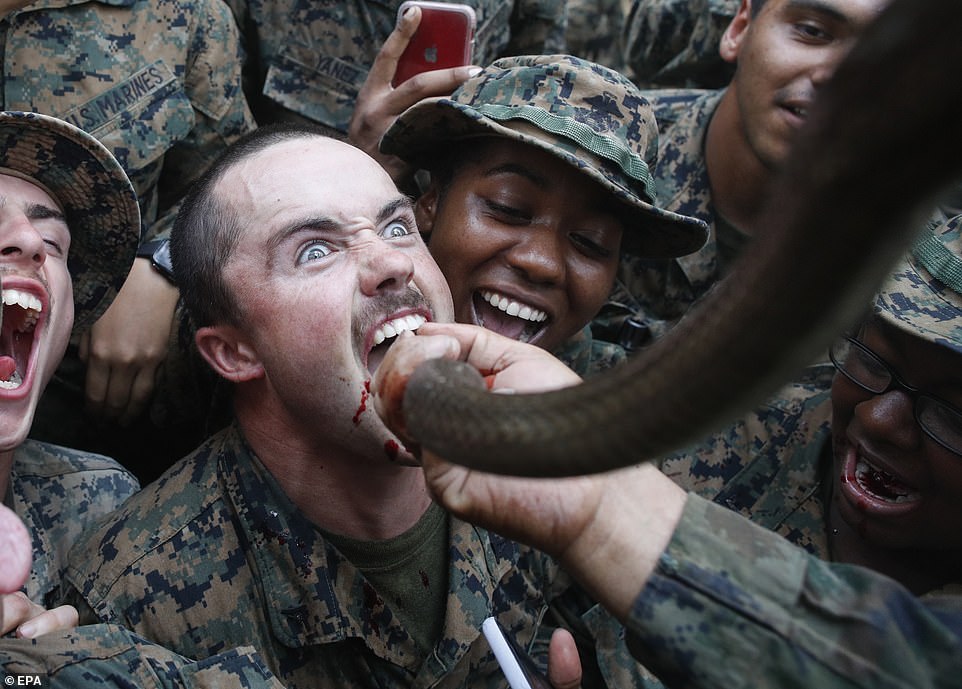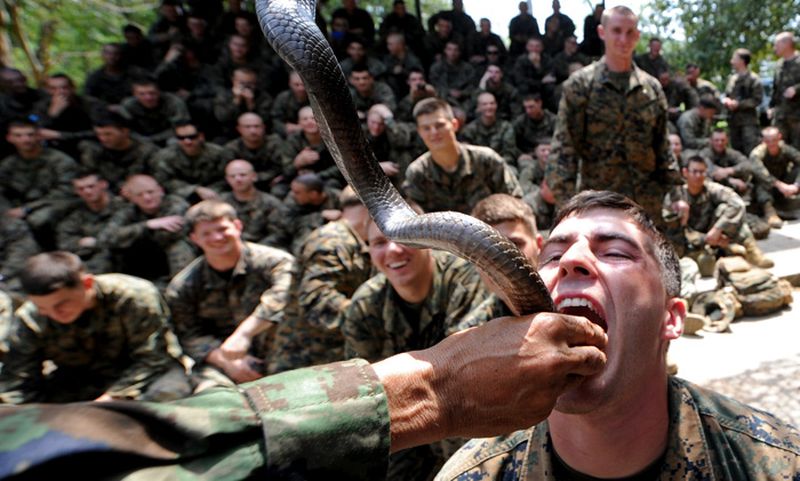Gruesome military exercises where soldiers are made to eat live geckos and drink snake blood could lead to another pandemic, animal rights campaigners have claimed.
The U.S. Marines’ grizzly drills ‘pose a zoonotic disease threat akin to Covid-19’, and are also endangering the king cobra, according to People for the Ethical Treatment of Animals (PETA).
Now, the animal rights group has filed a petition to stop the alleged ‘frat-like party masquerading as training’ in Thailand which is known as Cobra Gold.
The exercise – Cobra Gold camp – has been carried out each year in the South East Asian country since 1982.

During the training soldiers learn what plants are safe to eat, and what to do if they become separated from their unit.
As part of the exercises involving US and Thai troops the heads of snakes are reportedly torn off and their blood is drunk.
Soldiers are said to be learning how to survive in the jungle, and they also peel the skin from geckos before eating them alive.
Their petition is urging the new Secretary of Defense Gen. Lloyd J. Austin III to prioritise ending Cobra Gold.
PETA Vice President Shalin Gala said: “A Girl Scout could figure out how to survive in a jungle without killing animals for practice, and so, too, should our military’s best and brightest.

“PETA is calling on the Pentagon to do away with the bloodlust killing of animals during Cobra Gold, which sullies the honour of the Marines, risks public health, and endangers species that are vulnerable to extinction.”
The animal rights group then claimed that the training ‘poses a dangerous zoonotic disease threat akin to the novel coronavirus.’
The next Cobra Gold training had been delayed until August because of concerns from coronavirus, the group said.
In 2011, the Marine Corps Mountain Warfare Training Centre in California halted its use of live animals in survival training courses after discussions with PETA.

Before that, the US Army’s Dugway Proving Ground in Utah cancelled a survival skills training course that used animals after PETA appealed to then–Defense Secretary Les Aspin to intervene.
Related





